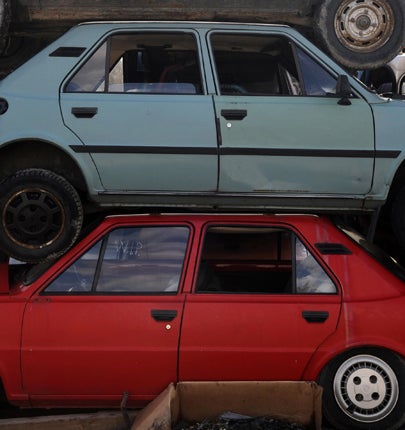Policy pledges to fill the cash gap if car insurer comes up short

On the face of it, buying a new car is a terrible investment. Vehicles start haemorrhaging value as soon as they are driven off the forecourt, in fact by the time the best-selling Ford Focus is three years old it will be worth 40 per cent less than its original list price.
However, the pain of depreciation is at its most acute when a vehicle is written off or stolen and the insurer's valuation is below the cost of replacing it. You could get an insurance policy to cover the difference, but depending on your vehicle of choice, you might be better off without it.
Car depreciation or "gap" insurance products now being sold through price comparison website Confused. com are designed to make up the price you paid and the insurer's offer shortfall. For example, if you buy your car for £10,000, but when you claim your insurer values it as only worth £8,000, the gap policy will pay out the £2,000 difference. "The insurance industry has been selling gap insurance for donkeys' years," says Graeme Trudgill, corporate affairs executive at the British Insurance Brokers Association. "In a time of recession when people are focusing on the key areas of cover it's a nice to have, but not a need to have."
The cost of such products is based upon the value of your car and the term of the policy you require. The more your car is worth and the longer you want it to be covered, the more it will cost you. Prices vary depending on your provider, but for a one-year policy for a car worth less than £10,000, you are looking at around £82 per year.
Gap policies are traditionally sold in dealerships but Will Thomas, from Confused.com, warns that they tend to charge inflated prices. "In a dealership, gap is potentially being used as a second income as it has the benefit of making the dealership extra commission," he says.
Gap products can also be useful if you are still under obligation to repay any finance when you lose the car. However, Paul Inskip, director of insurance brokers Tempcover.com, says: "People may well be interested as a protection for themselves, but if you don't have finance you don't need it."
In addition, if a vehicle is written-off within the first two years of its life it will be replaced with a brand new car. And if your insurer does offer you less than you think your car is worth you don't have to accept.
Mr Inskip says: "It's a bid and offer type situation, they will offer a particular price but if you can come up with evidence that it's worth more, they will negotiate."
Join our commenting forum
Join thought-provoking conversations, follow other Independent readers and see their replies
Comments
Bookmark popover
Removed from bookmarks